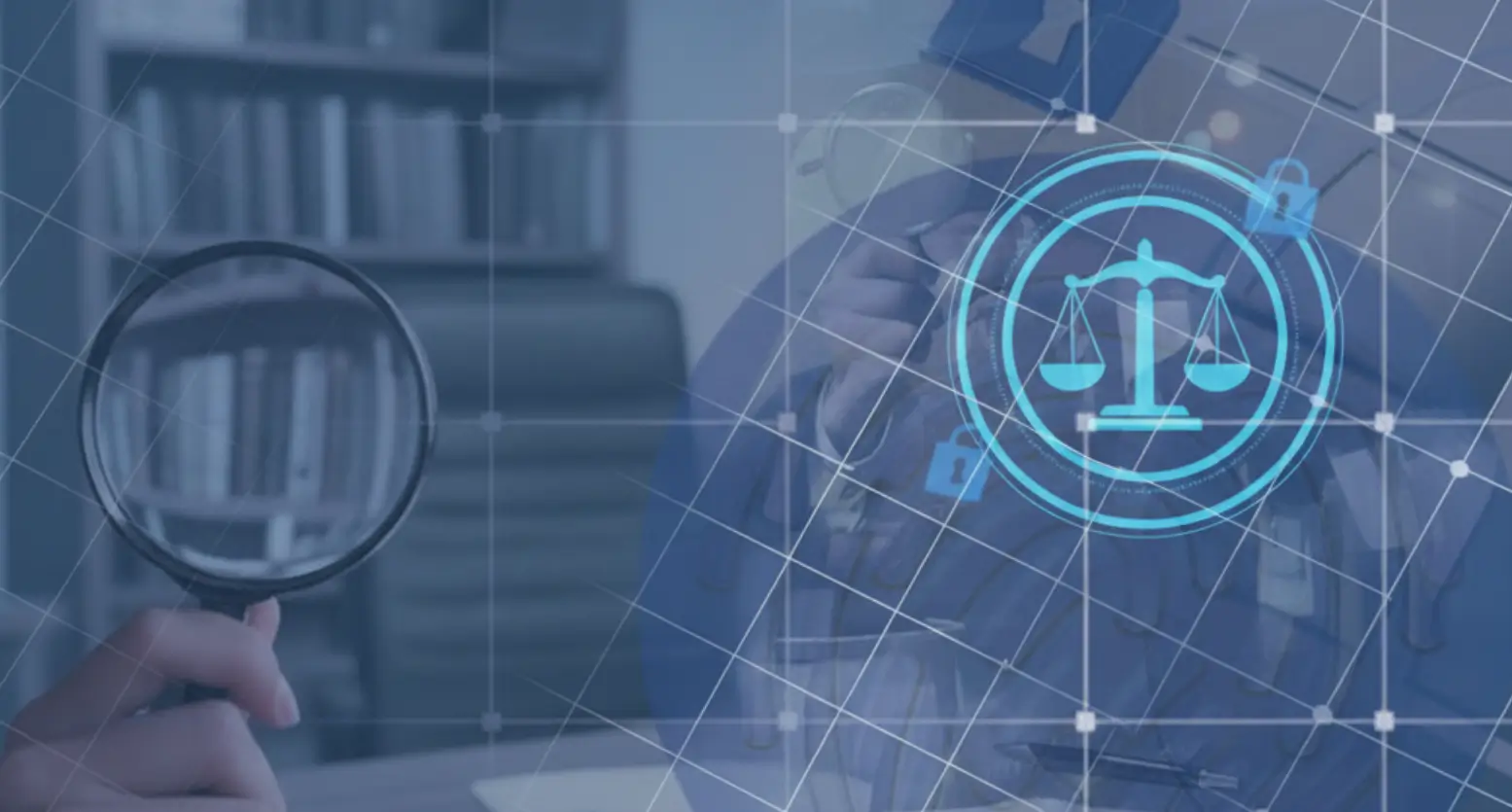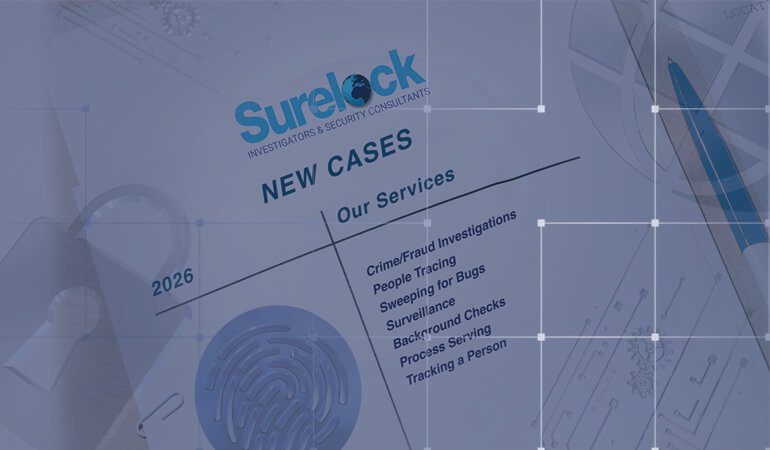In England and Wales, county courts alone processed 1.7 million civil claims in 2023. That number shows just how often individuals and businesses depend on solid, reliable evidence to prove a case.
When you hire a private investigator, the goal is to uncover information that can make a difference in legal proceedings. But can that information actually be used in court? The answer is yes, provided the evidence has been collected lawfully and handled properly. This article explains how private investigator evidence works under UK law, what makes it admissible, and how to make sure it supports rather than harms your case.
What Does “Used in Court” Really Mean?
When lawyers or judges say something can be “used in court”, they mean it is admissible. Admissible evidence is relevant to the case, trustworthy, and gathered legally. If a private investigator crosses legal boundaries, such as accessing private data without consent or trespassing on property, the court will not accept that information. Worse still, using it could weaken the client’s position.
The key is not simply whether something can be used in court, but whether it meets the strict legal standards required for acceptance.
The Legal Rules Around Private Investigator Evidence
For evidence gathered by a private investigator to be accepted and used in court, it must comply with UK legislation. The main laws that apply are the Data Protection Act 2018, which governs how personal information is collected and stored, the Human Rights Act 1998, which protects privacy under Article 8, the Regulation of Investigatory Powers Act 2000 (RIPA), which controls surveillance and monitoring, and the Protection from Harassment Act 1997, which prevents intrusive or distressing behaviour.
These laws exist to protect both investigators and the public. They help guarantee that any evidence presented in court is fair, accurate, and legally obtained.
What Kind of Evidence Can Be Used in Court
A private investigator can collect many types of evidence, but all must be gathered legally and without deception. Courts generally accept photographs and video footage taken in public areas where privacy is not expected, detailed written reports describing what the investigator observed and when, public records such as property ownership or company filings, and social media posts that are visible to the public.
When handled correctly, this type of material can be powerful and used in court to support claims in civil, family, or employment cases.
When Private Investigator Evidence Might Be Rejected
Even careful investigations can fall apart if the evidence is collected unlawfully or mishandled. Courts will not accept material that was obtained through trespassing, hacking, or phone tapping, that breaches privacy or data protection rules, or that cannot show a clear record of how it was gathered and stored. Evidence that has been edited or manipulated will also be rejected.
If a private investigator uses illegal methods, their findings cannot be used in court, and both they and their client could face penalties or legal consequences.
Why Courts Accept Private Investigator Evidence
Judges and solicitors recognise that a private investigator can play an important part in uncovering the truth. Courts often accept their evidence because it provides clear, factual information that helps to clarify disputes. When presented correctly, it can be used in court to support timelines, verify claims, or identify inconsistencies.
However, investigators must be transparent about how they obtained the information and must show that it was collected lawfully. A clear, honest explanation of the methods used makes the evidence far more persuasive.
Criminal and Civil Cases: What’s the Difference
The way private investigator evidence is treated depends on the type of case. It is most often used in court for civil matters such as divorce proceedings, custody disputes, or cases involving fraud or misconduct. Civil courts work on the balance of probabilities, meaning a judge decides based on what seems more likely to be true.
In criminal cases, the standards are stricter. Evidence must meet a higher threshold of proof, and investigators often need to cooperate closely with the police or solicitors. This does not mean that their findings are irrelevant, only that the process for presenting them is more demanding.
How to Make Sure Evidence Can Be Used in Court
If you intend to hire a private investigator, it is important to choose carefully. Work only with agencies that are registered with the Information Commissioner’s Office (ICO) and ideally members of a professional organisation such as the Association of British Investigators (ABI). Before the investigation starts, ask how the evidence will be collected and stored. Make sure there is a written agreement outlining what will be done, how long it will take, and how the findings will be reported.
Avoid asking an investigator to do anything unlawful. Sticking to clear, ethical boundaries gives you the best chance that the results can be accepted and used in court without question.
The Role of Ethics in Private Investigations
The conduct of a private investigator is just as important as the evidence they provide. Courts value professionalism, transparency, and respect for privacy. If information is obtained dishonestly or invasively, it will almost always be rejected.
Reputable investigators, such as those at Surelock, follow strict ethical standards and operate within the limits of UK law. This approach means that their work remains credible and that any evidence they provide can confidently be used in court.
Key Takeaways
Hiring a private investigator can be an effective way to obtain facts, but the way the work is carried out determines whether it can be used in court. Evidence that is gathered legally and recorded carefully can strengthen a case, while anything obtained unlawfully will likely be dismissed. The best safeguard is working with an experienced professional who understands both the legal and ethical standards required.
FAQs About Court
Can a private investigator’s evidence really be used in court?
Yes. UK courts often accept evidence from professional investigators, provided it was gathered legally and is clearly documented.
What kind of evidence holds up best in court?
Photographs, reports, and official records gathered lawfully are most likely to be used in court.
Can a private investigator testify in court?
Yes, a private investigator can appear in court to explain how their evidence was obtained.
Will the other side see the evidence?
Yes. Both sides in a legal case have the right to review any evidence that is being used in court.
What happens if evidence is collected illegally?
If evidence is gathered unlawfully, it cannot be used in court, and the investigator or client could face penalties.
Conclusion: Understanding How Private Investigator Evidence Works in Court
In conclusion, the value of a private investigator’s evidence depends on how it is collected and presented in court. Legally obtained, well-documented information can make a meaningful difference to your case, whether it involves a civil dispute, family issue, or business investigation. Evidence gathered unlawfully or through deception will almost certainly be rejected by the court and could damage your position.
Working with a professional, ethical agency means your findings are credible and admissible when it matters most. For lawful and discreet investigative support, contact Surelock today to discuss how we can help you gather evidence that holds up in court.






